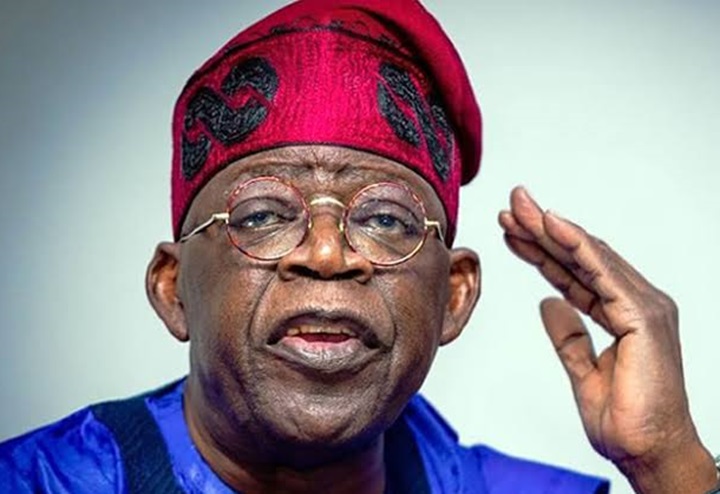President Bola Ahmed Tinubu has said that the Nigerian government has redirected about N4 trillion saved from the removal of fuel subsidies to critical infrastructure and social welfare programmes aimed at easing the burden on ordinary Nigerians and stimulating the economy. Speaking at the opening of the National Conference on Public Accounts and Fiscal Governance in Abuja, Tinubu explained that the decision to remove the subsidy was difficult but necessary to free up funds that could be invested in projects that benefit the majority of the people rather than a privileged few.
He said that for years, the fuel subsidy regime drained public funds that could have been spent on roads, schools, hospitals and social interventions, while mostly benefiting smugglers and a small group of elites who exploited the system. According to him, the subsidy system cost the country trillions of naira annually and did little to improve the lives of ordinary Nigerians. He added that since the removal, the government has prioritized directing the savings to vital sectors, especially transport infrastructure, power projects, and programmes that cushion the effects of rising living costs on vulnerable citizens.

President Tinubu assured Nigerians that his administration is determined to ensure that every naira saved from the removal of subsidies is properly accounted for and used transparently for projects that have direct impact on communities across the country. He said that his government is aware of the hardship many Nigerians are experiencing due to rising fuel costs and inflation but stressed that the decision was taken to prevent a total collapse of the economy and to lay a stronger foundation for sustainable development.
He noted that the savings have already been deployed to several major road constructions, railway rehabilitation, and expansion of rural electrification projects to boost productivity and reduce the cost of doing business. He also highlighted the government’s support for small businesses through grants and soft loans, as well as targeted cash transfers and food distribution to low-income households to help them cope with the rising cost of living.
President Tinubu called on the National Assembly and other oversight bodies to remain vigilant in ensuring that the funds are used strictly for the purpose they were intended for. He said that proper checks and balances would help prevent misuse and restore citizens’ confidence in government spending. The President stressed that under his watch, wastage and diversion of public funds would not be tolerated, adding that he is determined to implement reforms that will block leakages in the system and strengthen accountability.
In their remarks at the event, Senate President Godswill Akpabio and Speaker of the House of Representatives Tajudeen Abbas commended the President for his courage in ending the subsidy regime and pledged that the legislature would continue to work with relevant agencies to monitor how the funds are utilised. Akpabio stated that the Senate would support the government’s efforts to deliver tangible development results while ensuring that audit recommendations are fully implemented to recover public funds where necessary.
Speaker Abbas noted that previous audit reports had uncovered billions of naira in unrecovered funds and urged government agencies to comply with all financial regulations to close gaps that allow corruption and mismanagement. He called on accountants and auditors at all levels to see themselves as key partners in the drive for prudent management of public resources.
Many Nigerians have expressed mixed reactions to the subsidy removal since it was announced in May 2023. While some citizens and economic experts believe it was long overdue and necessary to reduce wasteful spending, others have criticised the government for not putting enough measures in place to cushion its harsh impact on household incomes. Some civil society groups have also urged the government to publish detailed reports on how the savings are being spent to ensure transparency.
Despite the controversy, Tinubu has maintained that the policy will ultimately free Nigeria from its reliance on borrowing to fund the budget and help create new jobs by investing in sectors that drive growth. He said his administration remains focused on building roads, railways, power projects, and other infrastructure that will unlock opportunities for businesses and reduce the cost of goods and services in the long term.
As the government continues to implement the subsidy removal policy, many Nigerians will be watching closely to see whether the promised projects materialise and whether the savings will translate into real improvements in living conditions across the country. Tinubu said that though the decision has come with temporary hardship, it was the only way to reset the economy and ensure that Nigeria’s limited resources are used wisely to build a better future for all citizens.
He appealed for patience and support from Nigerians, saying that with continued oversight and cooperation between the government, parliament, and the people, the difficult reforms would eventually yield positive results for the country’s growth and development.
Support InfoStride News' Credible Journalism: Only credible journalism can guarantee a fair, accountable and transparent society, including democracy and government. It involves a lot of efforts and money. We need your support. Click here to Donate
